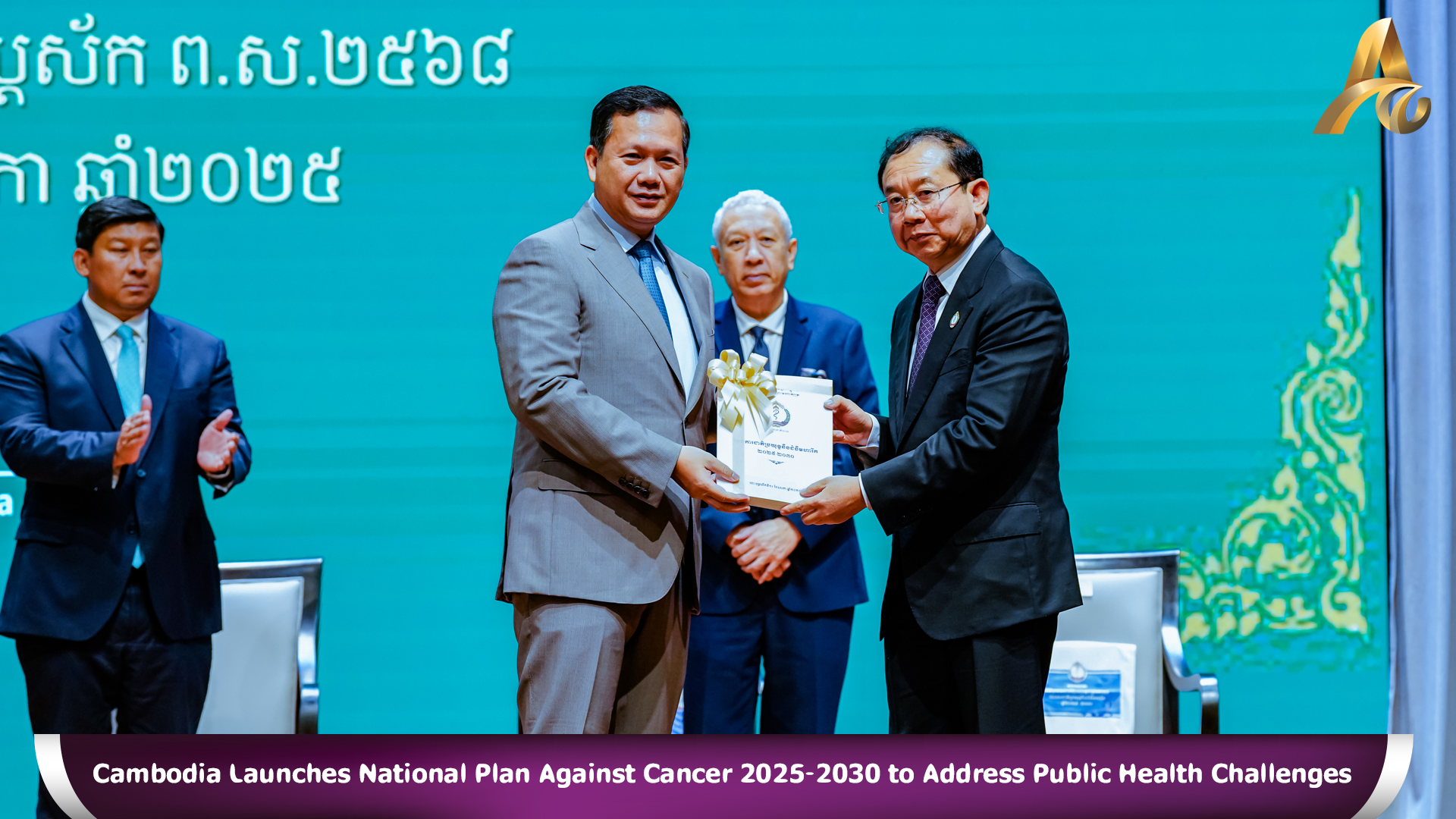
Cambodia Launches National Plan Against Cancer 2025-2030 to Address Public Health Challenges
PHNOM PENH, May 5, 2025 — Prime Minister Hun Manet officially launched Cambodia’s National Plan Against Cancer 2025-2030 this morning, reaffirming the government’s strong commitment to tackling the rising cancer burden and improving healthcare services nationwide.
In his remarks at the event, Prime Minister Hun Manet stated that cancer has become a significant threat to both individuals and society, with wide-reaching socio-economic impacts. “The Royal Government of Cambodia regards the fight against cancer as one of its top priorities,” he affirmed. “This plan demonstrates our firm commitment to protecting lives and reducing the burden of this deadly disease.”
He further emphasized ongoing efforts to strengthen healthcare infrastructure, highlighting the modernization of Luang Mae Hospital. “Originally built to serve women’s health needs, Luang Mae Hospital is now being transformed into a dedicated cancer treatment center,” he explained. “I have approved a multi-million-dollar budget to upgrade its facilities and improve operational efficiency, and we will not slow down our progress.”
The Prime Minister acknowledged Cambodia’s current shortage of specialized cancer professionals. “While constructing hospitals and purchasing advanced equipment can be achieved quickly, training qualified specialists takes time,” he said. “Our government has considered every aspect—hospital upgrades, cutting-edge technology, and professional training—to ensure comprehensive, quality care for our citizens.”
He expressed hope that in the future, Cambodia will decentralize cancer treatment services, enabling regional hospitals—such as those in Siem Reap and Kampong Cham—to provide quality cancer care. “This will allow patients in distant provinces to receive treatment locally, reducing travel and associated costs,” he added.
Addressing the urgent need for prevention, Prime Minister Hun Manet noted that approximately 20,000 new cancer cases are diagnosed each year in Cambodia. “Prevention is key,” he emphasized. “Public awareness campaigns and behavioral change are vital to decreasing these numbers over time.”
The Prime Minister also highlighted the government’s efforts to curb tobacco use, especially among youth. “We strongly oppose the production and use of electronic cigarettes,” he asserted. “Cambodia does not need to manufacture e-cigarettes. There are many other sectors for investment, and we must enforce policies to prevent harmful habits among our children and students.”
He concluded with a call for increased physical activity and early health intervention. “I have urged citizens to participate in sports and exercise regularly for better health,” he said. “We must work together—government, communities, and individuals—to build a healthier, more resilient Cambodia.”
Professor Chheang Ra, Minister of Health, emphasized the profound impact of cancer on individuals and society during the launch of Cambodia’s National Cancer Control Plan (NCCP) 2025-2030. “Cancer is a significant burden for patients, their families, friends, and society as a whole,” he stated. “It can severely affect an individual’s potential, as well as the economic stability of families and the nation.”
He underscored that a well-structured, comprehensive national strategic plan, coupled with effective implementation, is vital for achieving effective cancer management. “The Royal Government of Cambodia is committed to promoting primary prevention through targeted interventions aimed at reducing risk factors,” he said. “These include addressing social and environmental factors that contribute to cancer.”
The Minister highlighted the importance of prevention efforts. “To combat cancer effectively, we must strengthen prevention. Health professionals have a crucial role in this endeavor by compiling research on external influences on health,” he explained. “This includes understanding how environmental and social factors impact cancer risk.”
He also stressed the need for public awareness. “Providing accurate information to citizens about risk-prone behaviors—such as unhealthy diets and physical inactivity—is essential,” Minister Chheang Ra added. “Educating society and enlightening other stakeholders who need to understand harmful practices will play a important role in reducing the incidence of cancer.”
































